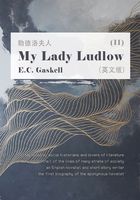The harmony that resides in the delicate proportions of lines and masses becomes mirrored in the mind.The repetitions of pattern give us rest.The marvels of design stir the imagination.In the mere loveliness of the materials employed there are latent elements of culture.Nor is this all.By its deliberate rejection of Nature as the ideal of beauty,as well as of the imitative method of the ordinary painter,decorative art not merely prepares the soul for the reception of true imaginative work,but develops in it that sense of form which is the basis of creative no less than of critical achievement.For the real artist is he who proceeds,not from feeling to form,but from form to thought and passion.He does not first conceive an idea,and then say to himself,'I will put my idea into a complex metre of fourteen lines,'but,realising the beauty of the sonnet-scheme,he conceives certain modes of music and methods of rhyme,and the mere form suggests what is to fill it and make it intellectually and emotionally complete.From time to time the world cries out against some charming artistic poet,because,to use its hackneyed and silly phrase,he has 'nothing to say.'But if he had something to say,he would probably say it,and the result would be tedious.It is just because he has no new message,that he can do beautiful work.He gains his inspiration from form,and from form purely,as an artist should.A real passion would ruin him.Whatever actually occurs is spoiled for art.All bad poetry springs from genuine feeling.
To be natural is to be obvious,and to be obvious is to be inartistic.
ERNEST.I wonder do you really believe what you say?
GILBERT.Why should you wonder?It is not merely in art that the body is the soul.In every sphere of life Form is the beginning of things.The rhythmic harmonious gestures of dancing convey,Plato tells us,both rhythm and harmony into the mind.Forms are the food of faith,cried Newman in one of those great moments of sincerity that make us admire and know the man.He was right,though he may not have known how terribly right he was.The Creeds are believed,not because they are rational,but because they are repeated.Yes:Form is everything.It is the secret of life.
Find expression for a sorrow,and it will become dear to you.Find expression for a joy,and you intensify its ecstasy.Do you wish to love?Use Love's Litany,and the words will create the yearning from which the world fancies that they spring.Have you a grief that corrodes your heart?Steep yourself in the Language of grief,learn its utterance from Prince Hamlet and Queen Constance,and you will find that mere expression is a mode of consolation,and that Form,which is the birth of passion,is also the death of pain.
And so,to return to the sphere of Art,it is Form that creates not merely the critical temperament,but also the aesthetic instinct,that unerring instinct that reveals to one all things under their conditions of beauty.Start with the worship of form,and there is no secret in art that will not be revealed to you,and remember that in criticism,as in creation,temperament is everything,and that it is,not by the time of their production,but by the temperaments to which they appeal,that the schools of art should be historically grouped.
ERNEST.Your theory of education is delightful.But what influence will your critic,brought up in these exquisite surroundings,possess?Do you really think that any artist is ever affected by criticism?
GILBERT.The influence of the critic will be the mere fact of his own existence.He will represent the flawless type.In him the culture of the century will see itself realised.You must not ask of him to have any aim other than the perfecting of himself.The demand of the intellect,as has been well said,is simply to feel itself alive.The critic may,indeed,desire to exercise influence;but,if so,he will concern himself not with the individual,but with the age,which he will seek to wake into consciousness,and to make responsive,creating in it new desires and appetites,and lending it his larger vision and his nobler moods.The actual art of to-day will occupy him less than the art of to-morrow,far less than the art of yesterday,and as for this or that person at present toiling away,what do the industrious matter?They do their best,no doubt,and consequently we get the worst from them.It is always with the best intentions that the worst work is done.And besides,my dear Ernest,when a man reaches the age of forty,or becomes a Royal Academician,or is elected a member of the Athenaeum Club,or is recognised as a popular novelist,whose books are in great demand at suburban railway stations,one may have the amusement of exposing him,but one cannot have the pleasure of reforming him.And this is,I dare say,very fortunate for him;for I have no doubt that reformation is a much more painful process than punishment,is indeed punishment in its most aggravated and moral form -a fact which accounts for our entire failure as a community to reclaim that interesting phenomenon who is called the confirmed criminal.
ERNEST.But may it not be that the poet is the best judge of poetry,and the painter of painting?Each art must appeal primarily to the artist who works in it.His judgment will surely be the most valuable?
GILBERT.The appeal of all art is simply to the artistic temperament.Art does not address herself to the specialist.Her claim is that she is universal,and that in all her manifestations she is one.Indeed,so far from its being true that the artist is the best judge of art,a really great artist can never judge of other people's work at all,and can hardly,in fact,judge of his own.That very concentration of vision that makes a man an artist,limits by its sheer intensity his faculty of fine appreciation.















